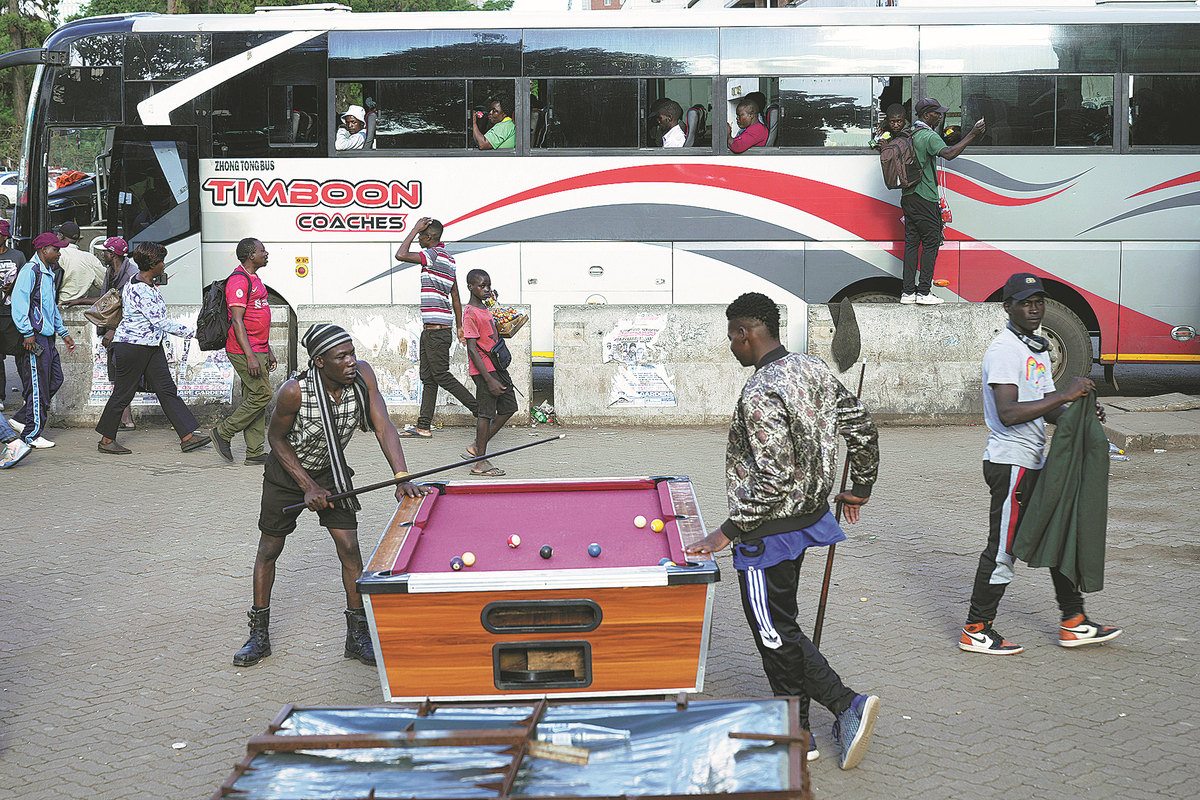A cue for success?


Authorities sometimes carry out so-called clean-up operations to confiscate pool tables scattered all over. Often enforcers of city by-laws are simply paid off with as little as a $2 bribe to look the other way. Most punters in low-income townships place dollar bets on games in which they can win $3 or $4.
In Ruwa, competition is more organized and stakes are higher. Each club member paid $10 as a participation fee, which went toward the prize money. On a recent day, 31 players paid to participate. Dozens more were spectators, cheering and betting on their favorite players.
"Imagine taking home $150! That's more than what many gainfully employed people get per month," said Goto, the spokesman. "Pool should now move from bars to schools and community halls like other sports, it has become mainstream after all."
For Chisakarire, the 18-year-old, pool has become more than a game. From playing and betting in backyard taverns, he is dreaming bigger.
"It has changed my life," he said, before sinking his next ball to win the tournament and pocket $150. "I can see myself playing in Europe one day."























